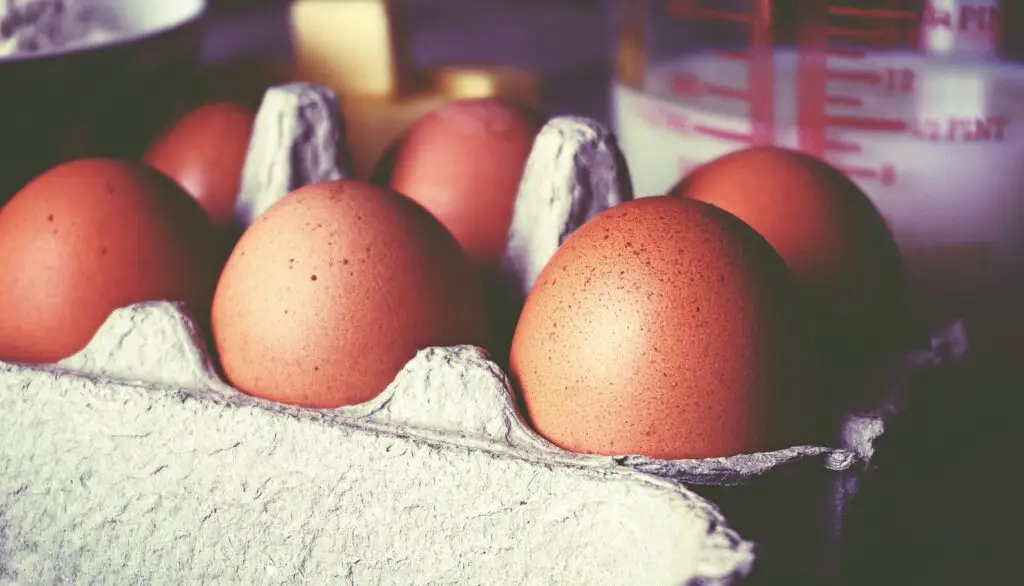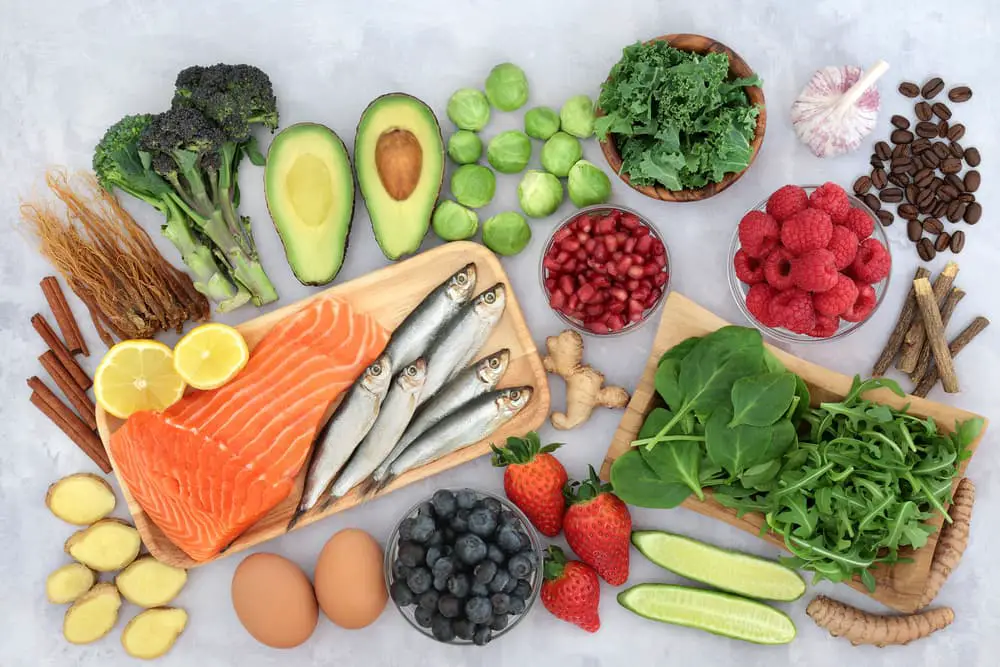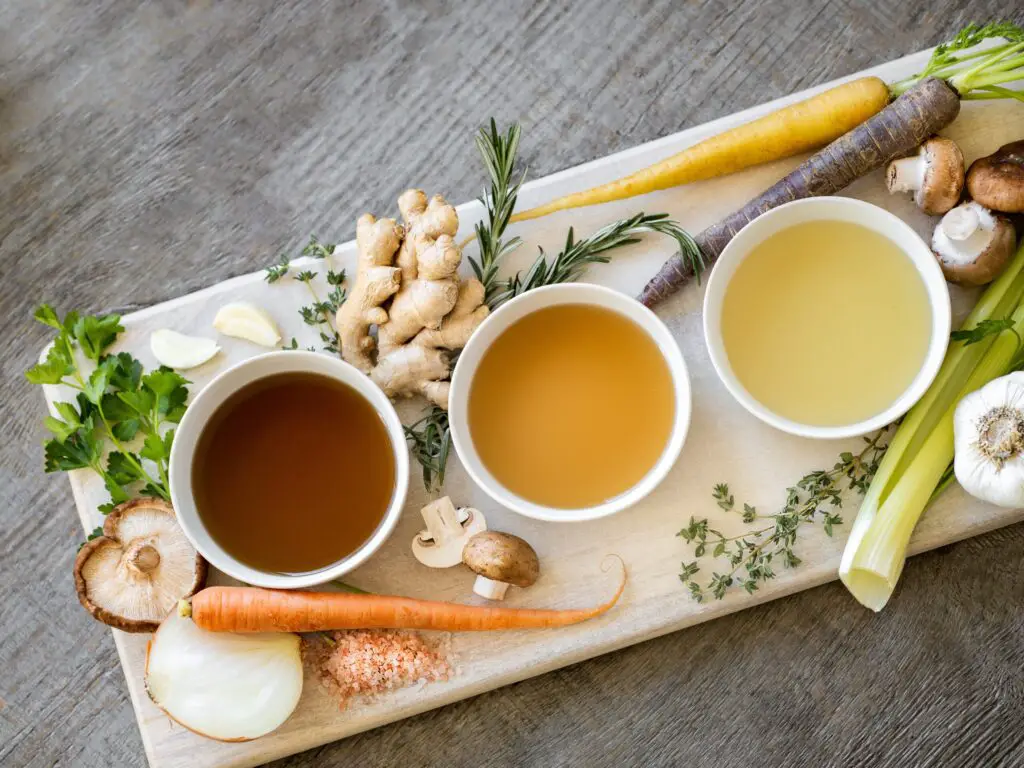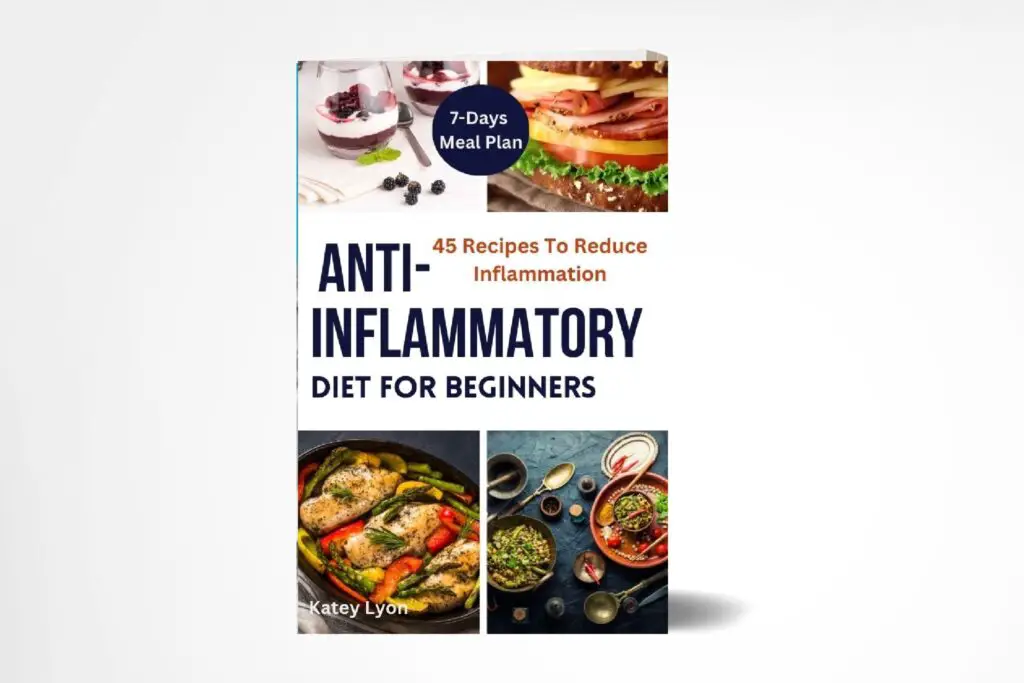8 Anti-Inflammatory Cheeses That Are Good for Your Health
Anti-inflammatory cheeses can be a great addition to your diet, providing essential nutrients while helping to reduce inflammation in the body. While some cheeses contain additives and unhealthy fats that may trigger inflammation, others offer gut-friendly probiotics, omega-3s, and high-quality protein. In this guide, we’ll explore 8 of the best cheeses for an anti-inflammatory diet, so you can enjoy delicious, health-boosting options without the guilt.
Here 8 anti-inflammatory cheeses
Feta Cheese
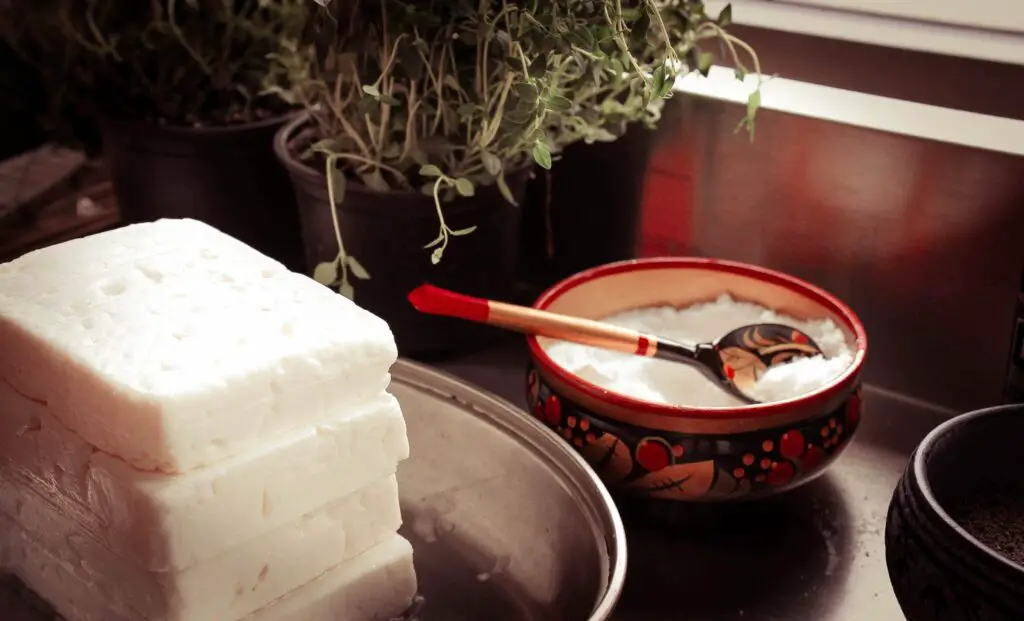
Feta cheese is one of the best cheeses for an anti-inflammatory diet, is a good source of calcium and provides probiotics that can help promote a healthy gut. A balanced gut microbiome is crucial for maintaining and controlling inflammation.
Recipe: Mediterranean Quinoa Salad with Feta Cheese
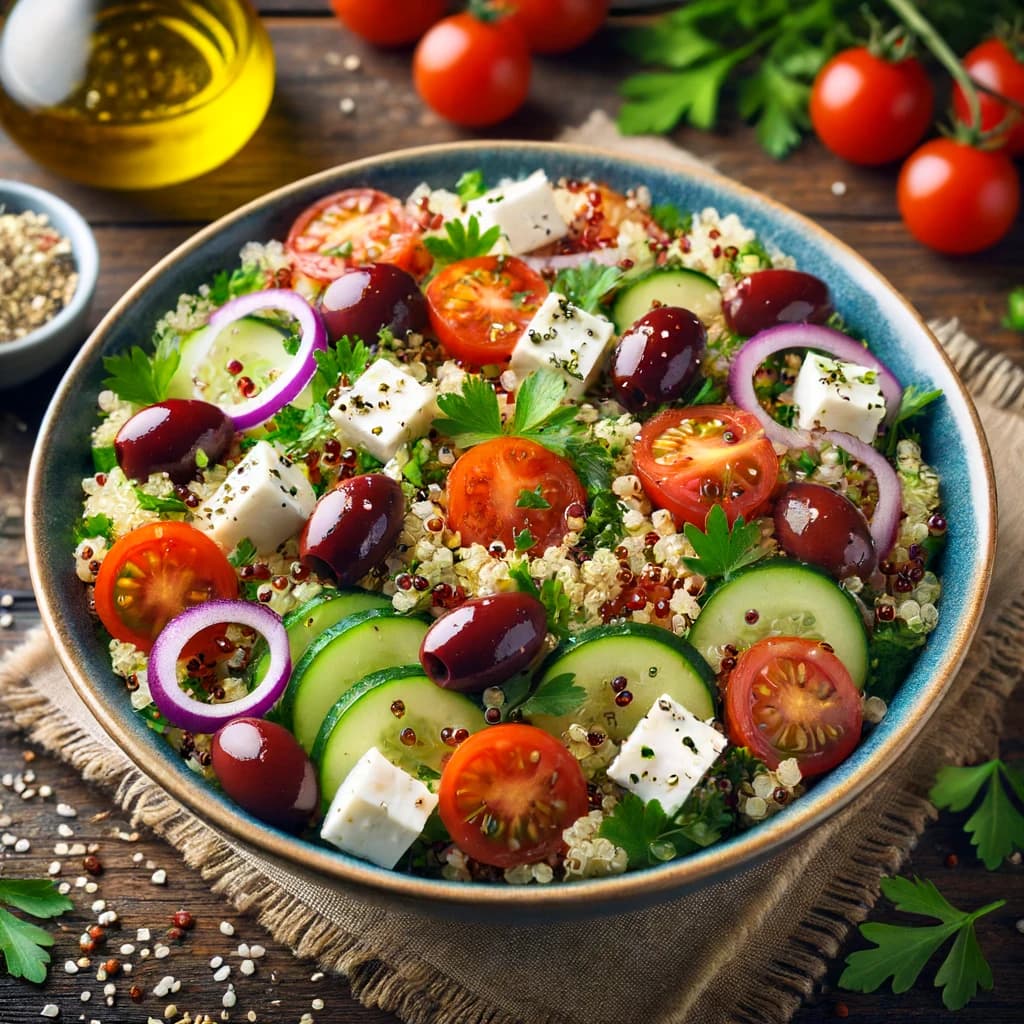
Servings: 4
Prep Time: 15 minutes
Cooking Time: 15 minutes
Ingredients:
- 1 cup quinoa
- 2 cups water
- 1 cup cherry tomatoes, halved
- 1/2 cup cucumber, diced
- 1/4 cup red onion, finely chopped
- 1/4 cup Kalamata olives, pitted and sliced
- 2 tablespoons fresh parsley, chopped
- 2 tablespoons extra-virgin olive oil
- 2 tablespoons lemon juice
- 1 teaspoon dried oregano
- Salt and pepper, to taste
- 1/2 cup crumbled feta cheese
Instructions:
Rinse the quinoa under cold water to remove any bitterness.
In a medium saucepan, bring the water to a boil. Add the rinsed quinoa and reduce the heat to low. Cover and simmer for about 15 minutes or until the water is absorbed and the quinoa is tender. Remove from heat and let it cool.
Combine the cooked quinoa, cherry tomatoes, cucumber, red onion, Kalamata olives, and fresh parsley in a large mixing bowl.
In a small bowl, whisk together the extra-virgin olive oil, lemon juice, dried oregano, salt, and pepper.
Pour the dressing over the quinoa mixture and toss gently to combine.
Sprinkle the crumbled feta cheese on top of the salad.
Serve immediately or refrigerate for later. This salad can be enjoyed warm or cold.
Note: Feel free to add vegetables or herbs to enhance flavor and nutritional value.
This Mediterranean quinoa salad contains anti-inflammatory ingredients like olive oil and fresh vegetables. Feta cheese adds a delicious creamy touch to the dish. Enjoy!
Cottage Cheese
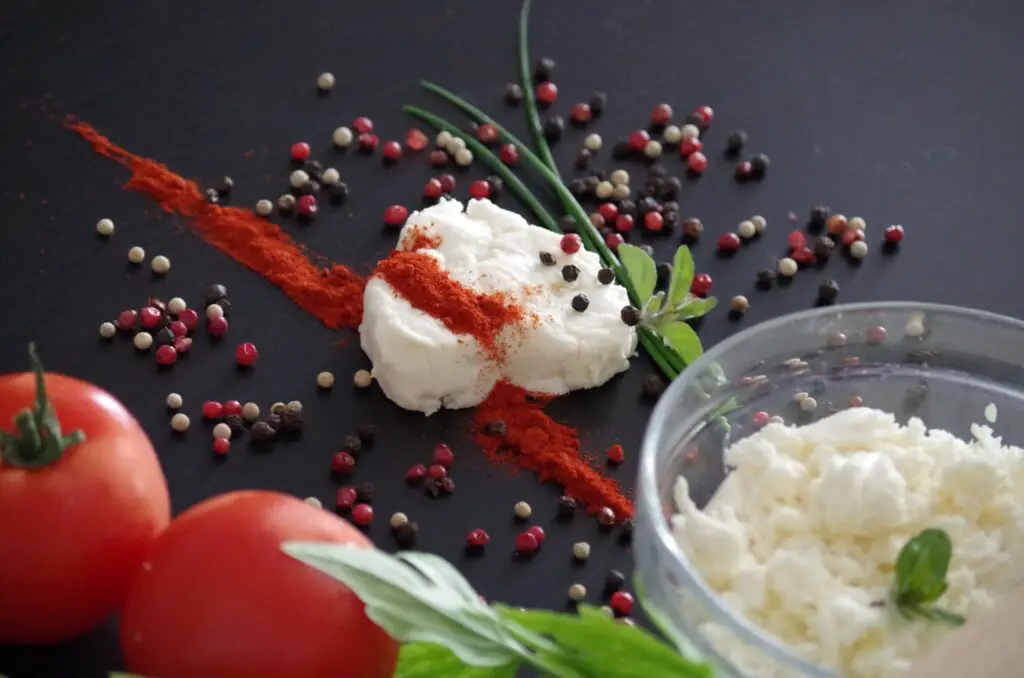
Cottage cheese is a great source of protein and is lower in fat than many other cheese varieties, making it one of the best cheeses for an anti-inflammatory diet
Ricotta Cheese
Part-skim ricotta cheese provides protein, calcium, and vitamin B12. These nutrients can help with bone health and maintaining muscle mass, and B vitamins can help reduce inflammation, that is why is considered one of the best cheeses for an anti-inflammatory diet..
Here’s a delicious anti-inflammatory recipe featuring ricotta cheese:
Recipe: Spinach and Ricotta Stuffed Chicken Breast
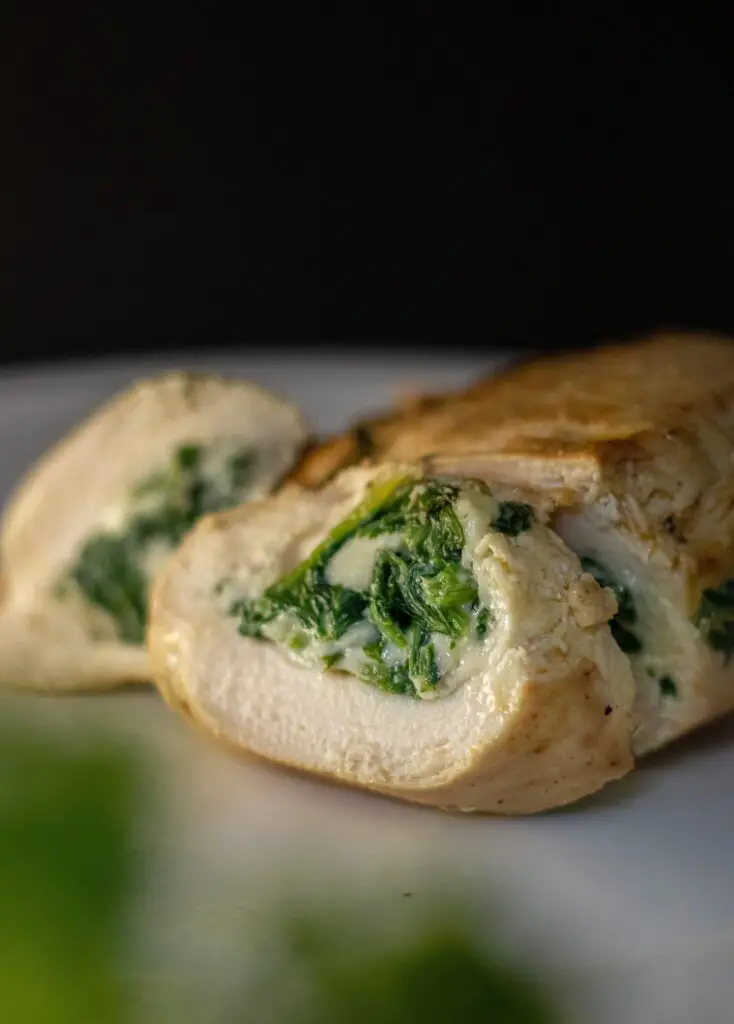
Servings: 4
Prep Time: 20 minutes
Cooking Time: 25 minutes
Ingredients:
- 4 boneless, skinless chicken breasts
- 1 cup fresh spinach leaves, chopped
- 1/2 cup ricotta cheese
- 1/4 cup grated Parmesan cheese
- 2 garlic cloves, minced
- 1 tablespoon fresh basil, chopped
- 1 tablespoon fresh lemon juice
- 1 tablespoon extra-virgin olive oil
- Salt and pepper, to taste
Instructions:
Preheat the oven to 400°F (200°C). Grease a baking dish with olive oil or line it with parchment paper.
Combine the chopped spinach, ricotta cheese, grated Parmesan cheese, minced garlic, fresh basil, lemon juice, salt, and pepper in a mixing bowl. Mix well to incorporate all the ingredients.
Lay the chicken breasts flat on a cutting board and use a sharp knife to make a horizontal cut through the thickest part of each breast, creating a pocket for the stuffing.
Spoon the spinach and ricotta mixture into each pocket, distributing it evenly among the chicken breasts.
Season the outside of the chicken breasts with salt and pepper.
In a large skillet, heat the olive oil over medium-high heat. Add the stuffed chicken breasts and sear them for about 2 minutes on each side until they turn golden brown.
Transfer the seared chicken breasts to the prepared baking dish and place them in the preheated oven.
Bake for approximately 20-25 minutes or until the chicken is cooked through and reaches an internal temperature of 165°F (75°C).
Once cooked, remove the chicken from the oven and let it rest for a few minutes before serving.
Serve the Spinach and Ricotta Stuffed Chicken Breast with side dishes such as roasted vegetables, quinoa, or a fresh salad.
Note: Feel free to add herbs or spices according to your preference to enhance the stuffing flavors. You can also customize the recipe by incorporating sun-dried tomatoes or sautéed mushrooms into the spinach and ricotta mixture.
This Spinach and Ricotta Stuffed Chicken Breast is a delightful and nutritious dish that combines the creaminess of ricotta cheese with the vibrant flavors of spinach and herbs. It’s a satisfying, anti-inflammatory meal that will leave you feeling nourished and satisfied. Enjoy!
Mozzarella Cheese
Fresh mozzarella cheese is a good source of probiotics for gut health. An imbalance in the gut microbiota can lead to chronic inflammation, so maintaining a healthy gut can help control inflammation. One of my favorite cheeses for an anti-inflammatory diet.
Here’s a flavorful anti-inflammatory recipe featuring mozzarella cheese, the best cheeses for an anti-inflammatory diet:
Recipe: Caprese Quinoa Salad
Servings: 4
Prep Time: 15 minutes
Cooking Time: 15 minutes
Ingredients:
- 1 cup quinoa
- 2 cups water
- 1 cup cherry tomatoes, halved
- 8 ounces fresh mozzarella cheese, cubed
- 1/2 cup fresh basil leaves, torn
- 2 tablespoons extra-virgin olive oil
- 2 tablespoons balsamic vinegar
- Salt and pepper, to taste
Instructions:
Rinse the quinoa under cold water to remove any bitterness.
In a medium saucepan, bring the water to a boil. Add the rinsed quinoa and reduce the heat to low. Cover and simmer for about 15 minutes or until the water is absorbed and the quinoa is tender. Remove from heat and let it cool.
Combine the cooked quinoa, cherry tomatoes, mozzarella cheese cubes, and torn basil leaves in a large mixing bowl.
Whisk together the extra-virgin olive oil and balsamic vinegar in a small bowl. Season with salt and pepper to taste.
Pour the dressing over the quinoa mixture and toss gently to coat all the ingredients.
Let the salad sit for a few minutes to allow the flavors to meld together.
Serve the Caprese Quinoa Salad as a side dish or a light lunch. You can also refrigerate it for later, as it tastes great chilled.
Note: Feel free to add additional ingredients such as sliced cucumber, avocado, or black olives to customize the salad to your liking. You can also drizzle some additional balsamic glaze on top for added sweetness and tanginess.
This Caprese Quinoa Salad combines the freshness of cherry tomatoes, the creamy texture of mozzarella cheese, and the aromatic flavors of basil, resulting in a delightful and anti-inflammatory dish. Quinoa provides a protein-packed base while offering essential nutrients, making it a nutritious and satisfying option. Enjoy the vibrant flavors of this salad while benefiting from its anti-inflammatory properties!
Parmesan Cheese
Parmesan cheese, like other aged cheeses, is a good source of probiotics. Its strong flavor also means a little goes a long way, so you can use less.
Parmesan cheese is often considered a good choice among the 8 cheeses for an anti-inflammatory diet for several reasons:
- Low Lactose Content: Parmesan is naturally low in lactose, making it easier to digest for those who are sensitive to lactose, which can sometimes contribute to inflammation.
- Rich in Nutrients: Parmesan is high in calcium, phosphorus, and protein, all of which are beneficial for bone health and overall body function. These nutrients can support the body’s anti-inflammatory processes.
- Probiotics: Aged cheeses like Parmesan contain beneficial bacteria that support gut health. A healthy gut is linked to lower inflammation levels in the body.
- Healthy Fats: Parmesan contains conjugated linoleic acid (CLA), a fatty acid that has been shown to have anti-inflammatory properties.
- Low Carbohydrates: Since inflammation can be triggered by high-sugar and high-carb foods, Parmesan’s low carbohydrate content makes it a safer choice for managing inflammation.
Despite these benefits, portion control is key, as cheese can still be calorie-dense.
Blue Cheese
Blue cheese, and other types of fermented cheese, contain probiotics that can help to maintain a healthy gut microbiome. The blue cheese is one of the best cheeses for an anti-inflammatory diet, but it is high in sodium, which can lead to inflammation, so it should be used in moderation.
Swiss Cheese
Swiss cheese is lower in sodium and fat than other cheeses, making it a good choice for those following an anti-inflammatory diet.
Swiss cheese is the winner among the 8 cheeses for an anti-inflammatory diet for 5 reasons:
- Low Lactose Content: Like Parmesan, Swiss cheese is naturally low in lactose due to its fermentation process. This makes it easier to digest for those with lactose sensitivity, which can help reduce potential inflammation.
- Rich in Protein and Calcium: Swiss cheese is high in protein and calcium, both of which are essential for maintaining healthy bones and muscles. Adequate protein intake can also help the body repair and build tissues, supporting overall health and reducing inflammation.
- Probiotics: Some Swiss cheeses, especially those made using traditional methods, contain beneficial bacteria (probiotics). These probiotics support gut health, which is closely linked to reducing systemic inflammation.
- Lower Sodium: Swiss cheese generally has a lower sodium content compared to other cheeses like cheddar. High sodium levels can contribute to inflammation, so choosing a lower-sodium cheese like Swiss can be beneficial for managing inflammation.
- Conjugated Linoleic Acid (CLA): Like other aged cheeses, Swiss contains CLA, a fatty acid known for its anti-inflammatory properties.
Swiss cheese is a balanced option for those looking to enjoy cheese without increasing inflammation. However, as with any cheese, moderation is important due to its calorie and fat content.
Cheddar Cheese
Cheeses for an anti-inflammatory diet can include cheddar cheese when consumed in moderation due to its beneficial properties. Cheddar is a good source of high-quality protein and calcium, both of which are important for supporting bone health and muscle function, essential in combating inflammation. Like other aged cheeses, cheddar contains minimal lactose, making it easier to digest for those with lactose intolerance, thus reducing potential inflammation.
Additionally, cheddar contains conjugated linoleic acid (CLA), a fatty acid that has been shown to have anti-inflammatory effects. Its probiotics, especially in aged varieties, can also promote gut health, which is closely linked to managing inflammation throughout the body. However, it’s important to choose lower-sodium varieties and consume it in moderation to avoid triggering inflammation from excessive fat or sodium intake.
Goat Cheese
Goat cheese is a great option for an anti-inflammatory diet due to its unique composition and health benefits. Unlike cow’s milk cheese, goat cheese contains less lactose and smaller fat molecules, which makes it easier to digest and less likely to cause inflammation in those with dairy sensitivities. It is also rich in essential nutrients like calcium, vitamin D, and healthy fats that support overall health. Additionally, goat cheese contains beneficial fatty acids, such as medium-chain fatty acids, which are known to have anti-inflammatory properties.
Cheeses for an anti-inflammatory diet, like goat cheese, also tend to have a lower casein content (a protein that can trigger inflammation in some individuals), making it a more gentle option for those with sensitivities. Moreover, goat cheese provides probiotics that promote gut health, which is crucial for reducing systemic inflammation.
Remember that while some cheeses can fit into an anti-inflammatory diet, they should be consumed in moderation as part of a balanced diet. Many cheeses can be high in saturated fats, sodium, and calories, so portion control is crucial. As with any dietary changes, it’s always a good idea to discuss them with a healthcare provider or dietitian when consuming the 8 best cheeses for an anti-inflammatory diet. For a more detailed look at the article: “30 Different Types Of Cheese“.
What cheese should be avoided for an anti-inflammatory diet?
While cheese can be included in an anti-inflammatory diet, some types should be consumed with caution due to their high saturated fat, sodium content, and in some cases, food additives. Here are a few examples of cheeses that should be limited or avoided:
Processed Cheese: This includes cheese products labeled as “cheese food” or “cheese product.” These are often high in additives, sodium, and unhealthy fats. They lack the probiotics found in many natural cheeses that can support a healthy gut and help control inflammation.
Cheese Spreads: Many cheese spreads are highly processed and contain additional fats, sodium, and additives. Like processed cheese, they lack the benefits of natural, fermented cheese.
Full-Fat Cheese: Full-fat versions of cheese can be high in saturated fats, contributing to inflammation if consumed in excess. This can include certain types of cheddar, gouda, and other full-fat cheeses.
Cheese with Added Sugars: Some flavored cheeses or cheese products might contain added sugars. Excess sugar consumption is linked with increased inflammation, so it’s best to avoid these if you’re trying to follow an anti-inflammatory diet.
Cheeses High in Sodium: Some cheeses, like Roquefort, feta, and some types of blue cheese, can be particularly high in sodium. Excessive sodium intake can contribute to increased blood pressure and inflammation, so it’s important to consume these cheeses in moderation or avoid them if possible.
Blue Cheese: While blue cheese does contain beneficial probiotics, it’s also high in sodium and can be high in saturated fat, so it should be consumed with caution.
Remember that an anti-inflammatory diet is not about entirely avoiding certain foods but rather about making healthier choices most of the time. If you want to follow an anti-inflammatory diet, it’s a good idea to aim for a balance of foods, focusing mainly on fruits, vegetables, lean proteins, whole grains, and healthy fats. Consuming various foods will help ensure you get a wide range of nutrients to support overall health.
Always consider incorporating these 8 best cheeses for an anti-inflammatory diet. As always, if you’re making substantial changes to your diet or have specific dietary needs or concerns, it’s best to consult a healthcare provider or dietitian.


